5 years after, where are the 112 Chibok girls left in Boko Haram shackles?
)
And this is saying a lot considering that, just a few weeks prior, it had also invaded the Federal Government College of Buni Yadi, Yobe State, and brutally slaughtered fifty-nine students, all boys.
Since 2014, the Chibok abduction saga has gone through more twists and turns than can be fitted into a feature-length movie, a movie that should definitely turn the stomach of the audience.
It has involved escapes, rescues, prisoner swaps and ransom payments, conspiracy theories, alleged rape, indoctrination, new babies, dead parents, and a bagful of grand unfulfilled promises.
However, despite how long it has dragged, five years today, a total of 112 girls remain unaccounted for.

While 57 of the girls escaped before Boko Haram could transport them to their base, then deep in the heart of Sambisa Forest, four others were rescued or escaped after two years, and a total of 103 were released after an agreement with the government. The deal involved a ransom payment and the release of five Boko Haram commanders.
That has left 112 girls still caught in the claws of an Abubakar Shekau-led Boko Haram faction whose powers has been on the wane in the past year while another faction has grown in wings.
How have 112 girls, kidnapped as teenagers, survived five years in the cold, on the very fringes of civilisation, with men who abducted them and stripped away their liberties?
Distressing reports abound about girls fate
Salomi Pogu, who was found by troops in Gwoza, Borno in January 2018, is the last Chibok girl to have escaped from Boko Haram. Since her return, not much has been heard about the remaining 112 girls.
![Salomi Pogu [Today]](https://image.api.sportal365.com/process/smp-images-production/pulse.ng/11082024/a6417df8-dc3e-4b5d-9ad7-6a4a206e4178)
Their continued stay in captivity has given rise to many theories about their fate with some of them reported, several times, to have died as far back as 2014.
For instance, a week after the abduction, a team of vigilantes claimed that four of the girls were killed and hastily buried for being 'stubborn and uncooperative' while they were camped near the village of Ba'ale, an hour's drive from Chibok.
This claim was never officially acknowledged by the government but Amina Ali Nkeki, who was found by a patrol group in May 2016, disclosed that six of the girls were already dead.
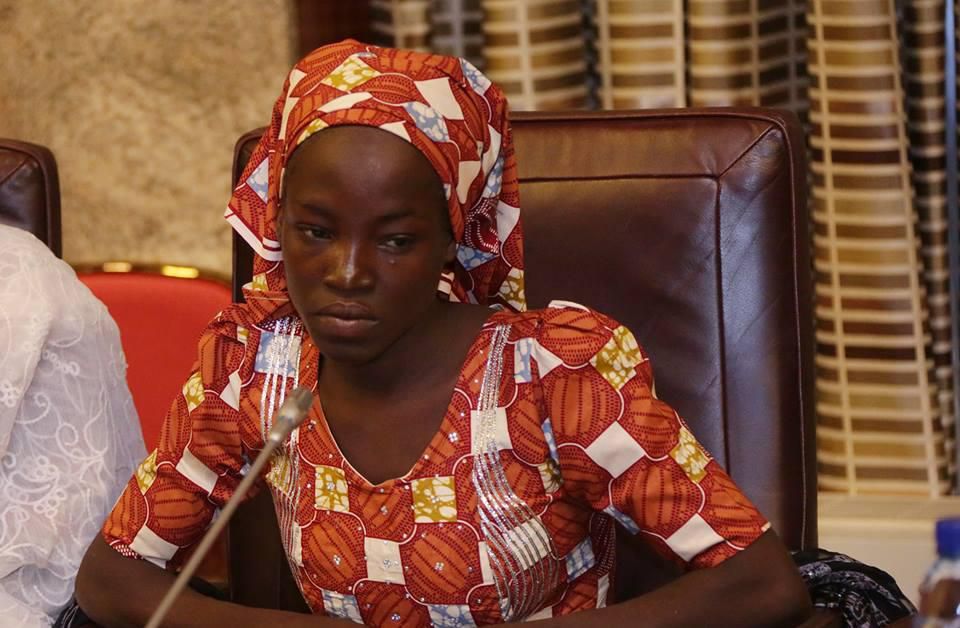
In a video released by Boko Haram in August 2016, a masked terrorist claimed that some girls died due to air strikes launched by the Nigeria Air Force (NAF) in its bid to hurt the militants. He disclosed that some of the girls also sustained life-threatening injuries and that 40 had been married off to militants.
A December 2017 report by the Wall Street Journal also claimed that 13 of the schoolgirls had died from a range of causes during the time spent in captivity.
"Some were felled by malaria, hunger or a snake bite. The majority died in airstrikes. Among those forcibly married to fighters, at least two died in childbirth," a source said.
Last year, Ahmad Salkida, a journalist who has accurately reported on a lot of Boko Haram activities, sensationally announced that only 30 of the Chibok girls were still alive according to information he claimed to have received from Boko Haram's leadership.
He said many of the girls died as a result of crossfire and bombardments of the security forces intent on rescuing them from their captors.
According to him, the 30 girls left alive were split between three different Boko Haram cells with some of them imbibing the doctrines and teachings of the sect and committed to not returning home to their families.
This is consistent with a video that was released by Boko Haram in January 2018 in which some of the Chibok girls said they were never returning home to their parents.
In the 20-minute video, where at least 14 of the girls were filmed, the one that spoke also revealed that they have all been married off to fighters.
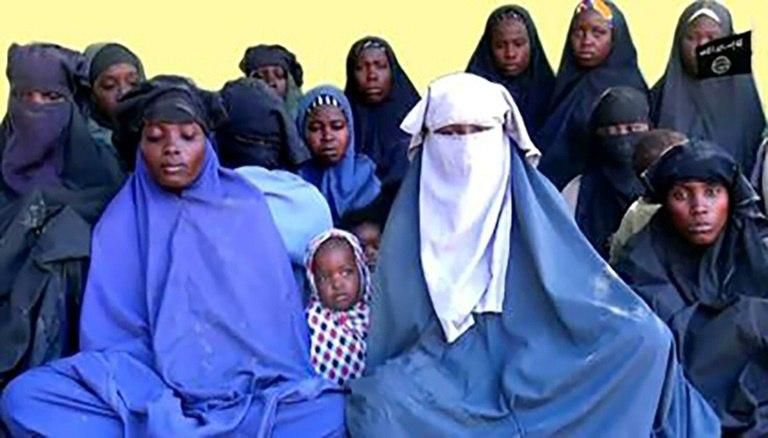
"We are the Chibok girls that you cry for us to return to you. By the grace of Allah, we will not return to you," she said.
The transformation of Dorcas Maida Yakubu
While not much is known about the 112 Chibok girls left in captivity, Dorcas Maida Yakubu, a choir girl when she was abducted, has grown to be one of the most known faces of the 2014 abduction.
Yakubu, the eldest of her parents' five children, was first thrust into the limelight when she was featured in one of Boko Haram's proof-of-life videos back in 2016.
In the video, a masked terrorist instructed the girls to appeal to their parents to pressure the government to release Boko Haram members who were in custody in exchange for them.
![Dorcas Maida Yakubu [News Express Nigeria]](https://image.api.sportal365.com/process/smp-images-production/pulse.ng/11082024/489fc228-8b89-42af-a6ec-9105f83b6bb4)
Yakubu was the only girl allowed to speak and she asked her parents to beg the government to agree to Boko Haram's demands so that all the Chibok girls could return home.
"Our parents please exercise patience. We are suffering here. There is no kind of suffering we haven't seen. Our sisters are injured; some have wounds on their heads and bodies.
"Tell the government to give them their people so we can also come to be with you. We are all children and we don't know what to do. The suffering is too much, please endeavour as we also have exercised patience," she pleaded in a mix of English and her native Kibaku language.
Yakubu's dramatic next video appearance months later was one that would distress her parents greatly.
When the government struck a deal with the terrorists to secure the release of 103 girls, 21 in October 2016 and then 82 in May 2017, Yakubu was unlucky to not make the cut.
However, it was later revealed by the presidency that 83 girls were expected for the second batch but one of them elected last-minute to remain with her captors. That girl has been largely rumoured to be Yakubu.
This was further cemented when Boko Haram posted a video in the wake of the 2017 release of hostages, with Yakubu making an appearance to announce she has no intentions of returning home to her parents.
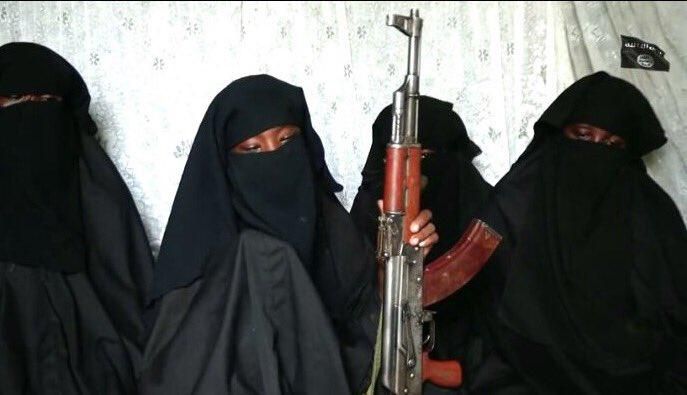
She said, "Our parents are not doing the wish of Allah and we want them to follow us. We don't want to go back."
Speaking to Pulse yesterday, Yakubu's father, Kabu, said his daughter only said those words under duress, confident that she's eager to return to her family.
"I know that my daughter will not say that because she was the one that was pleading for their release. How can somebody plead for their release and then turn back and say that she'll not come?
"That is not true because she's in the custody of terrorists. Whatever they tell her to say, she'll have to say. They forced her to say that," he said.
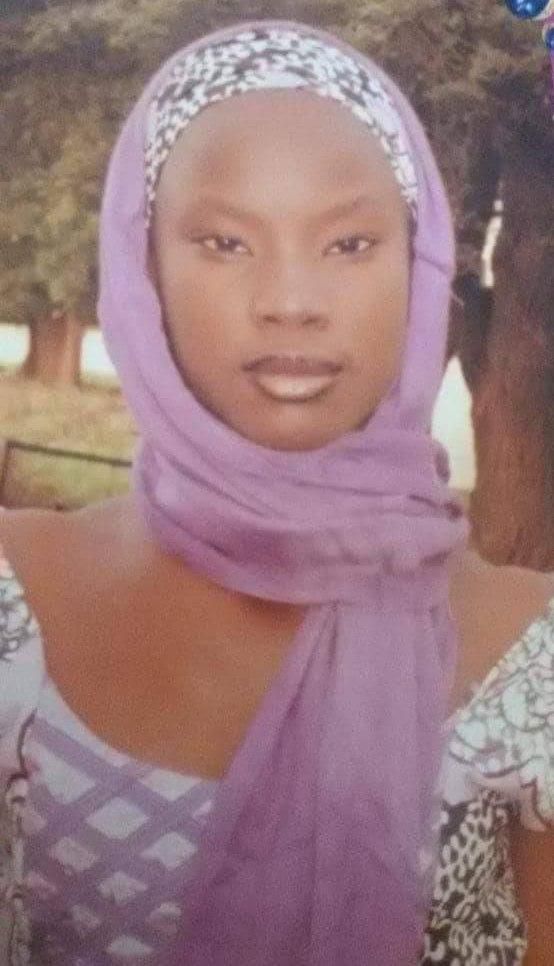
Kabu said that even though the government has tried with the release of some of the girls, it has still failed to properly investigate the girls' abduction despite promises made to parents by President Muhammadu Buhari.
He further noted that parents who have been speaking to journalists are targeted as the enemy by Boko Haram and the government, alleging that only the girls of those who didn't speak to the media have been released.
"They take us as the enemy because all those people that didn't talk, they've brought back their girls; but we that used to speak to journalists they've kept our girls in captivity up till this time," he complained.
Gapani Yanga, a sit-out coordinator for the Bring Back Our Girls (BBOG) advocacy group, also told Pulse that many parents of the girls left in captivity have been harassed into silence as they fear their children will not be released if they make comments in the media.
BBOG demands return of all Chibok girls
The BBOG group was created in the wake of the Chibok girls' abduction and has been advocating for the release of every single one of them left in captivity for the past five years.
![The Bring Back Our Girls (BBOG) group has relentlessly campaigned for the return of the Chibok girls abducted by Boko Haram [BBC]](https://image.api.sportal365.com/process/smp-images-production/pulse.ng/11082024/a7da6ca9-6dea-438c-a79d-41c48ec3c804)
However, for the BBOG group, campaigning for the return of the Chibok girls is not just about them alone, but also all the other hundreds and thousands of faceless hostages abducted by Boko Haram during its 10-year insurgency in the troubled northeast.
One of those hostages, who isn't so faceless, is Leah Sharibu, a schoolgirl who was abducted in very similar fashion to the Chibok girls when terrorists invaded her school last year.
Sharibu was abducted by the terrorists, alongside 111 other schoolgirls and one boy, from the Government Girls Science and Technical College in Dapchi, Yobe, on February 19, 2018. After weeks of negotiations with the government, the terrorists released 107 of the 113 originally abducted on March 21, 2018.
With five of the girls reported to have died, Sharibu was the only one left in captivity after she refused the terrorists' demand to renounce her Christian faith and convert to Islam.
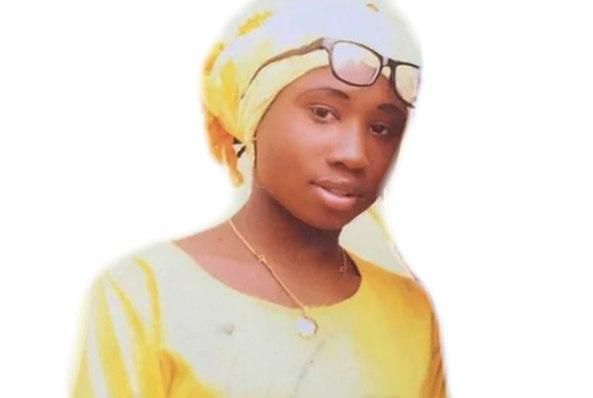
Unlike the Chibok girls, Sharibu is in the custody of the Islamic State West Africa Province (ISWAP), a faction that broke from Boko Haram in 2016 and was responsible for a wave of savage attacks on military bases in 2018.
To force the government's hand to negotiate with it last year, the group executed Saifura Ahmed and Hauwa Liman, two of the three female humanitarian workers abducted in Rann, Borno State days after the Dapchi raid.
When Ahmed was killed, Sharibu, who was also threatened with execution, was allowed to send an audio message to the government to secure her freedom.
"I am calling on the government and people of goodwill to intervene to get me out of my current situation.
"I am begging you to treat me with compassion, I am calling on the government, particularly the president, to pity me and get me out of this serious situation," she pleaded.
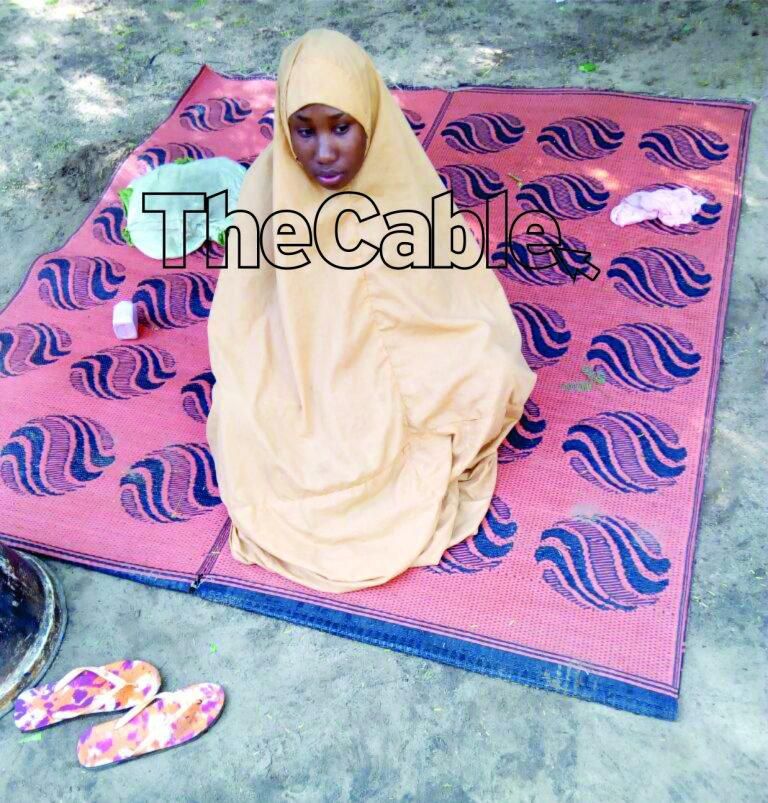
When Liman was killed a month later, like ISWAP promised, the group announced that it would keep Sharibu and the last humanitarian worker, Alice Ngaddah, as slaves.
"Based on our doctrines, it is now lawful for us to do whatever we want to do with them," the group announced.
President Buhari announced after Liman's execution that the government did everything within its powers to save her. However, his administration's best was not enough, just like it hasn't been for Sharibu, Ngaddah, the 112 Chibok girls and hundreds of other hostages believed to still be victims of Boko Haram's insurgency.
In a statement issued on Saturday, April 13, 2019, the president assured the parents of the girls that his administration is still committed towards bringing all of them back.
"Diverse efforts are being intensified to secure the release of the Chibok girls, along with all hostages in Boko Haram captivity, including Leah Sharibu," he said.
However, hours before his statement was released, BBOG spokesperson, Nifemi Onifade, told Pulse there's no indication that the government is committed enough towards the goal of securing the release of the Chibok girls as reflected in its unresponsiveness to its demands on numerous occasions over the past few years.
"The lack of interest and commitment of the government shows clearly in their cold silence - where an alternative of effective communication through an effective feedback mechanism exists," he said.
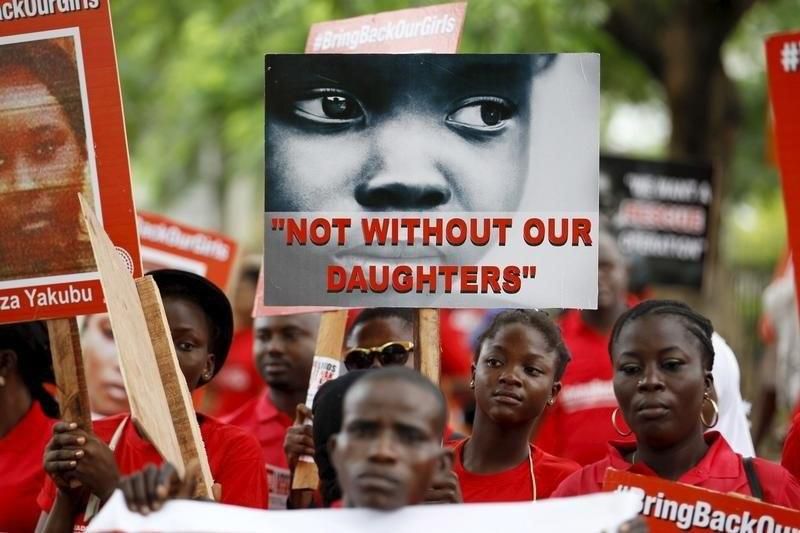
He further noted that the government has shown, with the previous release of the 103 Chibok girls and 107 Dapchi hostages, that it has the means to bring back the others and must show commitment to their return.
"As a movement, we hold on to hope that the Chibok girls will return because we do not have any reason to do otherwise as long as they remain alive.
"And the same things that apply for our Chibok girls remain relevant for Leah (Sharibu), Alice (Ngaddah) and all others in captivity," he said.
How much longer before 112 Chibok girls return home?
Another Chibok girl still in captivity who's featured prominently in the media is Sarah Samuel who was part of a group of five girls who wrote in a diary in the initial days of their abduction.
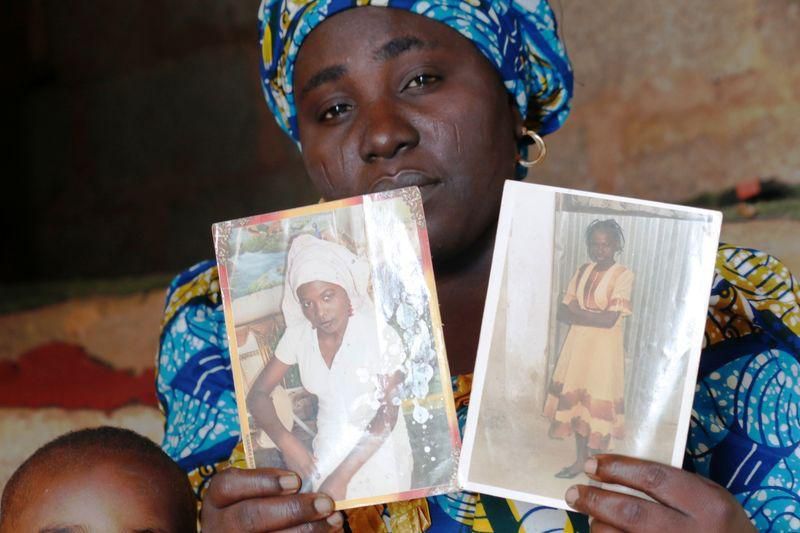
While the other girls, Naomi Adamu, Rhoda Peter, Saratu Ayuba and Margaret Yama, were released in May 2017, Sarah was not, apparently because she already married a Boko Haram militant at the time.
Her closest friend, Adamu, reported that she succumbed to intense pressure and married a Boko Haram fighter with hopes of a better life at a time when resources were dwindling in the terrorists' camp due to the military breathing down their necks.
"She got married because of no food, no water. Not everybody can survive that kind of thing," Adamu said two years ago.
Sarah's fate is believed to be the same one suffered by a lot of the Chibok girls who are yet to return from captivity as many of them were faced with difficult choices in the wilderness, choices that appear to have contributed to their prolonged stay away from their worried families.
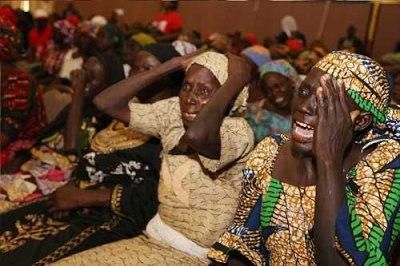
Since Salkida's shocking revelation last year, not much has been heard about the enslaved 112 Chibok girls and the longer their absence takes, the more harrowing the situation continues to be for their loved ones.
When Yakubu was abducted in 2014, she was a 15-year-old teenager who loved to sing and aspired to become a lecturer in the future.
She turned 20 last June and it's unclear if her parents will ever get the chance to hold her again and help her heal the wounds of being indoctrinated by a murderous sect.
Kabu told Pulse that he paid a Christmas visit to a Boko Haram captive that returned from Sambisa Forest last year and she assured him that his daughter was still alive.
He continues to hold on to a sliver of hope that his daughter will eventually return home if the government does its part in securing her freedom.
"We're pleading with the government up till this time to rescue those who are still alive," he said.
![Kabu Yakubu and his wife, Esther, have not lost hope that their daughter, Dorcas, will return home safely [Stephanie Busari/CNN]](https://image.api.sportal365.com/process/smp-images-production/pulse.ng/11082024/2454b65a-6248-4487-90a2-60ead9a83111)
Despite President Buhari's many promises that all the girls will be reunited with their very expectant families, no news of them is most especially bad news.
There's a big community of families that continues to hope for the safe return of their loved ones who got torn away from them, and having to wait for closure five years and counting isn't only incredibly sad, it's exceedingly cruel.

![Aisha blows hot on Security forces; Y7ou won't believe what she said [VIDEO]](https://image.api.sportal365.com/process/smp-images-production/pulse.ng/17082024/1f976edf-1ee2-4644-8ba1-7b52359e1a8f?operations=autocrop(640:427))
)
)
)
![Lagos state Governor, Babajide Sanwo-Olu visited the Infectious Disease Hospital in Yaba where the Coronavirus index patient is being managed. [Twitter/@jidesanwoolu]](https://image.api.sportal365.com/process/smp-images-production/pulse.ng/16082024/377b73a6-190e-4c77-b687-ca4cb1ee7489?operations=autocrop(236:157))
)
)
)
)
)
)
)
)
)
)